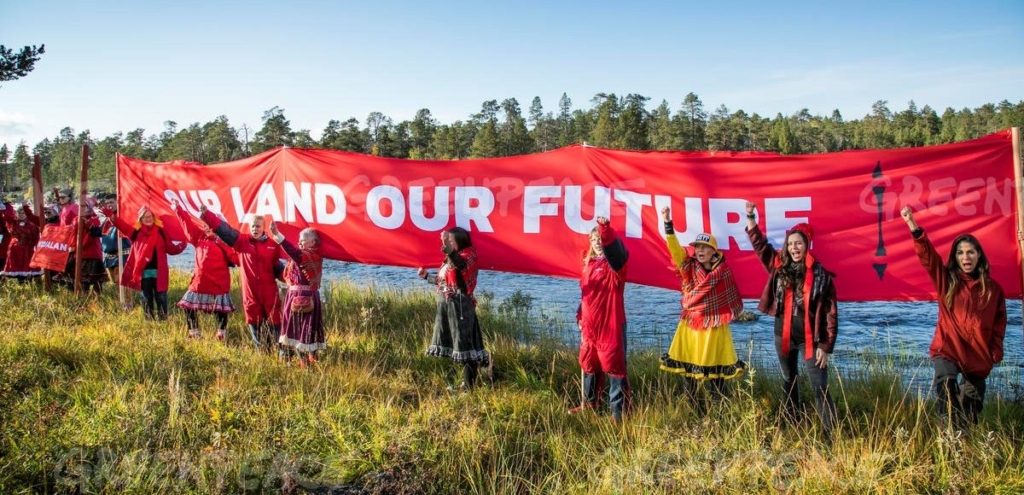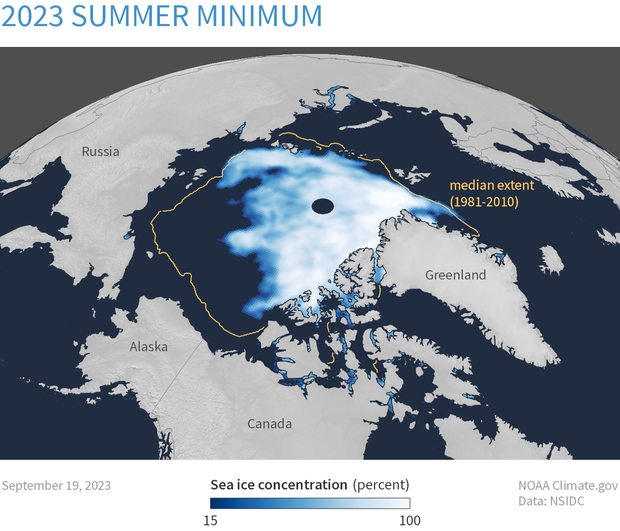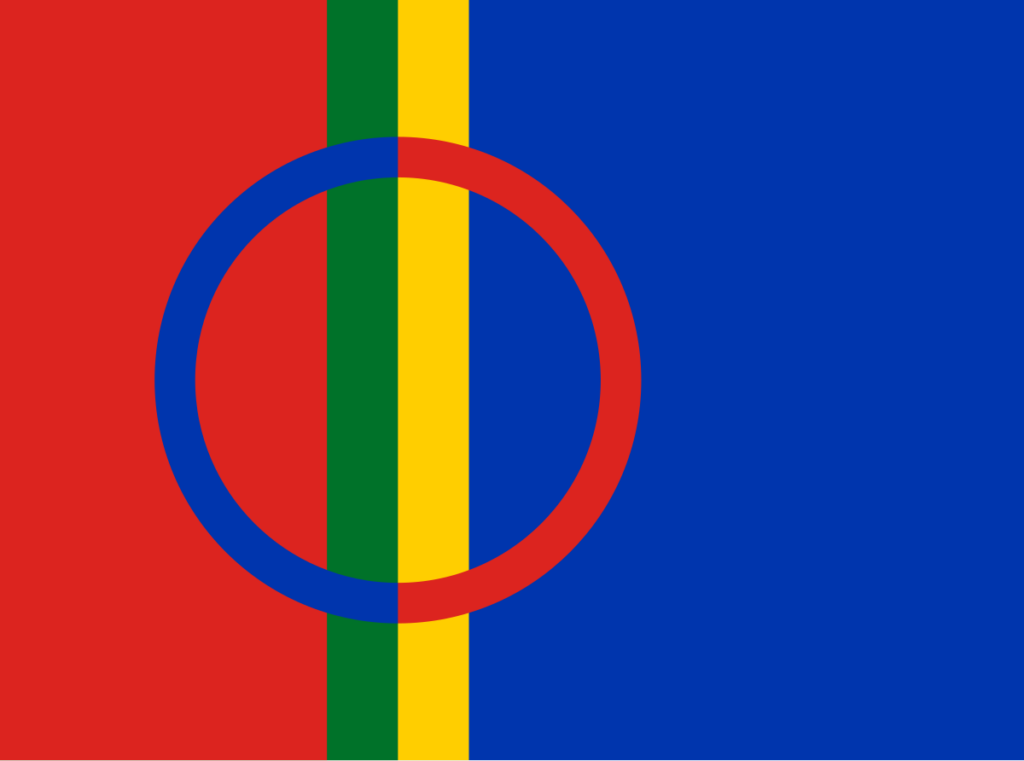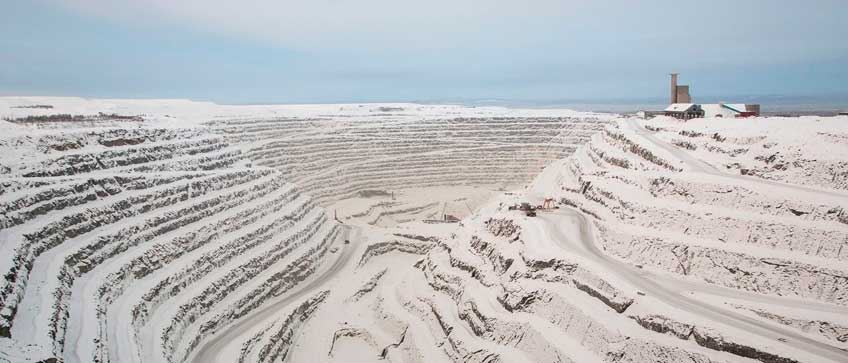Degrowth is key to respecting indigenous rights in the Arctic
US President Donald Trump’s threats to take over Greenland have created concern globally. However blatant his approach, the shock element masks the fact that the entire capitalist system follows the same extractivist and colonialist logic: Trump’s obsession is part of the so-called Arctic Opening, the process of corporations expanding mining, oil drilling and industrialisation of the whole region. As climate change accelerates, the Arctic – with its large deposits of raw materials and minerals – becomes more cost-effective to reach. However, the region, the northernmost six percent of the Earth’s surface, is fragile. It is also home to millions of people whose survival depends on stopping this new wave of destruction that threats to increase emissions and create more sacrifice zones – ecological wastelands due to extractivism and industrialisation. This can only be done if we rethink our relationship to material resources.


Flooding the zone
Trump’s Greenland ambitions have left many in a state of shock. Normally, the US does not threaten to take control of part of an EU nation’s territory. Is he flooding the zone with this and other deranged and imperialistic statements? Is this all diverting attention from more concrete authoritarian actions? Does Trump really want Greenland? Or is it a negotiating offer to put pressure on supposed allies to get better trade terms?
These are massive questions. The zone floods. Nevertheless, it is logical to assume that Trump will do everything he can to assert his interests; and Greenland is certainly in US interests. Climate meltdown offers mining companies the opportunity to plunder Greenland’s considerable precious metals and minerals. The retreat of the Arctic ice opens up a sea passage for the transportation of goods that leads directly past its melting shoreline. The US already has a military presence there, and more bases mean more power in the region.


Images of Arctic warming Climate Change: Arctic sea ice summer minimum
Yet Trump’s threat to Greenland is the visible tip of the iceberg of Arctic ambitions of European, Chinese, Russian, US and Canadian corporations. There is a massive rush to extract rare earth minerals and fossil fuels, expand shipping lanes and industrialise the region: business as usual is flooding the world, too.
The new great game north
Greenland has an autonomous government. However, a legal case brought by Australian-registered mining company Energy Transition Minerals against the Greenland and Danish governments shows how little autonomy governments have in the face of corporate interests. Greenland’s government banned uranium mining in 2021. For this, Energy Transition Minerals is now in the process of suing Greenland and Denmark for four times the autonomous region’s GDP. A Copenhagen court of arbitration is considering the company’s claim to have lost 76 billion Danish kroner (€10.2bn) for not being to mine in Kuannersuit, south central Greenland. This bullying is of course very Trump-esque. It also shows that for indigenous land rights, it does often not matter who is in charge.
In response to Trump’s Greenland threat, the Inuit Circumpolar Council, – representing first nations of Alaska, Canada, Greenland and Chukotka (Russia), – released a statement at the end of January. It included: “We do not wish to debate which state is better or worse to live in or is a better or worse colonizer. Rather we want to debate how we improve Inuit lives, livelihoods, wellbeing, and self-determination across all our regions.”
Denmark has colonised Greenland’s predominantly Inuit population since the early 18th Century. The first significant mining activities began in Greenland in the eary 1900s, as did commercial fishing. Colonisation means indigenous Greenlanders suffer a legacy of impoverishment, assimilation and structural racism. The United Nations has called for Denmark and Greenland to address these legacies of colonialism, including giving indigenous communities “the right to free, prior, and informed consent” over everything that impacts their lives and lands.
Colonisation in Greenland echoes what has happened to indigenous peoples across the world – even if extractive industrialisation came later to the Arctic. Yet, today the incursions increase, enabled by climate meltdown. Temperatures are rising four times the global average in the Arctic due to manmade climate change, according to study published in the peer-reviewed Nature journal. Scientists from the US Geological Survey estimated that the Arctic contains 13% of the world’s undiscovered oil, and 30% of its undiscovered natural gas. Yet we cannot burn even the known reserves of fossil fuels and maintain a liveable planet.
Russia and China want to build a Polar Silk Road – a northern ocean passage – to reduce distances of getting products to markets in Europe and beyond. Europe wants to get involved in this too, with plans to build an ‘Arctic Ocean Railway’ across Finland and Norway that will also enable transporting extracted minerals. Oil drilling and mining are increasing and going deeper into this fragile environment which has a unique biodiversity that is crucial to regulating the world. Indigenous peoples are the frontline of resistance against this new wave of destruction, including in Alaska, Russia and Canada.
Even ‘green’ capitalism threatens the Arctic. The Arctic Economic Council in their 2024 Mining Report sets out how most of the critical raw materials needed for renewable energy production could be available there. This body representing corporate interests should not to be confused with the Arctic Council – the eight nations surrounding the Arctic Ocean. The Arctic Economic Council grew out of an initiative that started in Davos, with the World Economic Forum. A working group of the WEF has suggested the Arctic has upwards of $1bn of resources ready for “sustainable development,” a phrase that translates as plunder.
Large scale mines and other forms of extractivism have created sacrifice zones the world over by poisoning water, land and air. Corporations have successively destroyed other parts of the world where conditions are far less severe and remote than the Arctic.
The Sami are the last indigenous people of Europe living in Norway, Sweden, Finland and Russia and face more destructive incursions. For instance, Norway promises new state of the art technologies to drill the Arctic sea without creating the ecological sacrifice zones elsewhere. Yet as I discovered in 2017 from a local Sami water defender, from Norway’s first oil drilling in the Arctic profits are the aim, not safety.
We need to move to a world where indigenous rights matter on principle, and stand with struggles to stop the destruction indigenous lands – which are the majority of the richest remaining biodiversities – to ensure an inhabitable world.
Resisting extraction in Europe’s far north
Sweden has a socially progressive reputation the world over, like its northwesterly neighbour Norway. Reality differs. Later in 2025, a Truth Commission in Sweden will report on how the country has mistreated the Sami. Láilá Susanne Vars, one commissioner for the inquiry, told the Guardian the commision has uncovered a “great deal of collective trauma” including forcing children into boarding schools, forcing people off their lands and other forms of abuse and violence.


Sami flag
Corporate expansion is yet another threat to the Sami, whose way of lives includes reindeer husbandry, salmon fishing and other ways to live off and in balance with their lands. One example is near the town of Jokkmokk in Sweden.
In 2006, Jokkmokk Iron Mines AB, subsidiary of British-based Beowulf mining, was granted exploration licences to mine in the Swedish Sápmi (land of the Sami). The company carried out test drillings in the early 2010, moves immediately resisted by the local Sami communities.
“Reindeer herding, and our Sami culture, simply cannot tolerate any more industrial activities. We have very little lands left and the last of them are being taken by private mining companies” explained Sami Mats Berg in 2011, speaking on behalf of local communities as reported by London Mining Network (LMN).
For over a decade, the Sami have shown they do not consent. They have resisted the mine through many means, including direct action camps to block the mining companies’ access to their lands, legal challenges, and teaming up with LMN to do shareholder activism in Beowulf’s London meetings. The Sami Parliament has said asserted that mining concessions should not be granted, and Sami communities have built broader protest alliances – including with the Swedish church, environmentalists and UNESCO, as the mine threatens a nearby mountaneous area, a World Heritage site.
In June 2024, Sweden’s Supreme Administrative Court approved a decision by the Swedish government for the mine to proceed. The legal battle moves next to the Land and Environment Court, which will decide whether to grant a mining licence.
With hundreds of new mines planned across the Sápmi, with similar tactics Sami water and land defenders are halting or stalling extractive projects across the region. For instance, a massive copper mining in Repparfjord, Norwegian part of Sápmi, remains on the drawing board as Sami resistance has pressured investors, including Credit Suisse to divest from the project.


One of the largest open cast mines in Sami Europe, Aitik Boliden Aitik mine, Sweden
Norwegian courts have said yes to the proposed copper mine in Repparfjord dumping hundreds of tonnes of toxic waste into fjords. This dangerous practice is only legal in Turkey, Papua New Guinea and Norway. Norway and the UK – already dump toxic and radioactive material into the North Sea with abandon. Meanwhile, nearby the site where Beowulf want to mine in Sweden, an old mine is literally underming the most northerly city in Sweden Kiruna– which is significant in terms of Sami heritage – so they are having to move it lock, stock, and barrel.
Experts from the United Nations are soon to determine whether the copper mine in Repparfjord can go ahead while respecting indigenous rights. The UN has also censured Finland, in October 2024, for giving out mining licenses that will threaten the Sami communities nearby without their free, prior and informed consent. In February 2022, the UN called on Sweden to halt Beowulf proceeding at Kallak as it “endangers indigenous lands” and “the open-pit mine will generate vast amounts of pollution and toxic waste, and endanger the protected ecosystem including reindeer migration.”
Digging back into the 2024 decision of Sweden’s Supreme Administrative Court to green light Beowulf’s mine, despite all the opposition, is revealing. The ruling in part, emphasised the mine’s “potential to generate significant socio-economic positive effects, which is considered good management of the area’s resources.” In short, economic growth trumps indigenous sovereignty.
Degrowth is direct action for indigenous solidarity
Supporting indigenous struggles is crucial in indigenous people’s fight against powerful corporations. Yet our own lives need systemic change too: degrowth is both an idea and an emerging movement gaining traction. It offers tangible means to stop enabling corporations destroying the planet, whether their plans are to extract in the Arctic or further afield.
Degrowth challenges the idea that we need more and more resources – which we do if we are to follow the orthodoxy of “green” transition, for example, the electrification of vehicles rather than making less cars. This continued thirst for consumption creates demand for rare earth minerals and raw materials, as evidenced by the statement by the Arctic Economic Council: “We need mining to transition to a low-carbon future. In the Arctic, we have the critical raw materials that will make it possible to reach our climate goals.“
Lowering our consumption of goods, especially single-use and throwaway products, undermines the need for Arctic sea routes to deliver tonnes of stuff – mainly from China. Degrowth means increasing alternatives such as landfill mining. Instead of destroying biodiversity-rich parts of the world, we could mine the necessary materials from landfills and detoxify these areas.
Most importantly, we need to recognise that we need a fundamental shift in our way of life or we are complicit in the interests of Trump and those who share his corporate mindset. Growth should no longer be a guiding principle that trumps matters of ecological or social justice. A healthy future means becoming aware of the finite limits of our planet and creating no-go zones for further exploitation, such as the Arctic.
Please donate & share:
Backing Bella Caledonia 2025 – a Creative & Arts crowdfunding project


Spill, baby, spill. Yes, renewable-powered consumer capitalism will also be a disaster (we don’t need an electric vehicle in every garage). What side to take on this War on Nature?
The term ‘indigenous’ is interesting in the context of Greenland.
Were the Norse earlier indigenous inhabitants of Greenland than the Inuit?
Norse people lived there from around the 900s (possibly before the Inuit arrived) until the 1400s.
They did indeed, and they called it ‘Greenland’ due to the fact that they could grow crops and raise livestock due to the warming period of the middle ages.
Something that would be impossible in today’s much colder climate despite ‘man made climate change’.
The Vikings left in circa 1250AD and as the climate got colder the Inuit/Eskimos in non PC language moved in and took over.
As for the ‘colonialist” Danes the ‘indigenous’ people of Greenland before the arrival of the ‘imperialists’ never had such things as:
1. Hospitals
2. Dental care
3. Schools
4. Balanced diet
5. Welfare payments
6. Motor cars
7. Proper houses instead of Igloos.
8. Living a full life instead of dying at an average age of 34 usually from starvation or incurable disease as for some strange reason ‘indigenous’ people were never that much into medicine.
What did the Danes ever do for us…..!
@John Learmonth, that’s the racist argument certainly, that in hundreds of years any ‘primitive’ people deprived of the gifts of colonisation would not develop or acquire those (or better) themselves. A better question would be how well-off would colonisers be without their loot, fruits of slavery and violent extractivism (and before you say ‘not better off’ for their crimes, how truly awful that would be). Some nations just buy in their railroad managers, like Scotland; we didn’t have to get the Dutch to invade us. And of course Europeans just nicked a lot of intellectual property and called it their own too.
SD,
The Dutch successfully invaded the UK in 1688 and put their own King (William of Orange) on the throne but nobody at the time or since has condemned them for ‘colonialism’.
As for the article I fail to see why so called ‘indigenous’ people should take priority over other people.
If you/I argued that the “indigenous” people of Scotland (whoever they are) should take priority over the non-indigenous you/I would be condemned as ‘fascists’/ blood and soil and all that.
@John Learmonth, do your comments make sense outside of your head?
Since Bella is an art-and-culture website, I was reminded of the movie Sóley (1982), which has a pretty relevant take on that colonisation agent, the Danish Church:
https://www.imdb.com/title/tt1019971/
If nothing else, a useful reminder that European colonisation was never built on rationality, but corrupt Will over natural Health.
My heid is nippet,
my Ma is grippet,
my sister snippet my hair.
Noo the wife says
– Ye’re nay a’ there.
It’s all very well arguing that there’s a need for a fundamental change in our relationship with material resources to protect the Arctic and ensure a sustainable future. “The philosophers have only interpreted the world, in various ways. The point, however, is to change it.”
It’s all very well to advocate for a shift away from endless economic growth and towards reduced consumption, increased recycling, and prioritising ecological and social justice. Waving that flag shows us what a fine fellow the flag-waver is.
The practical question is: How? What needs to happen in order to bring about such a ‘systematic change’? How will we make that happen?
“increased recycling” : )
Landfill mining. I can vouch for it being very popular in Karachi. It would constitute a fundamental shift in our way of life.